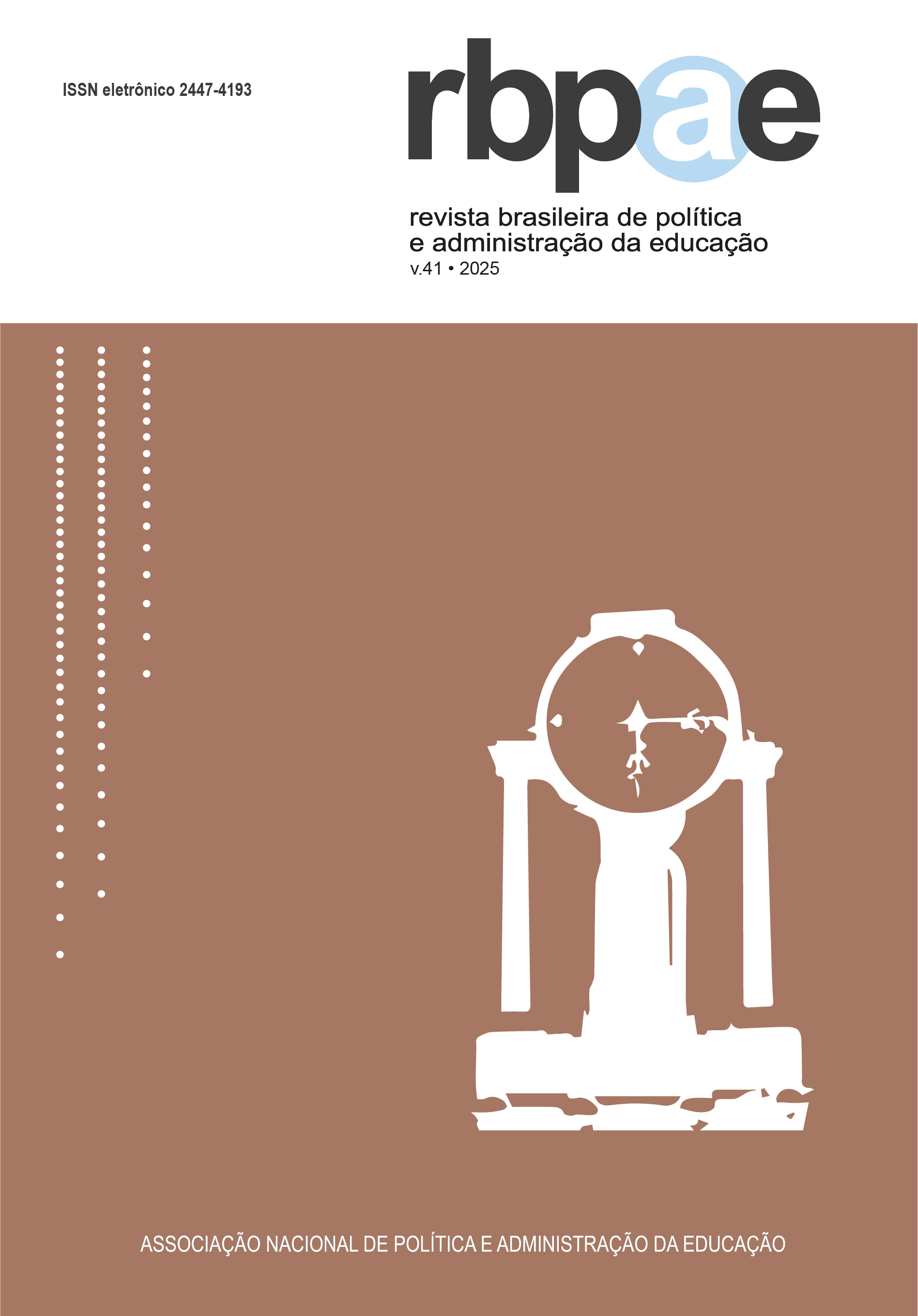How are the training policies of Chemistry graduates reflected in the existing programs in Colombia? A comparative study: 2015-2023
DOI:
https://doi.org/10.21573/vol41n12025.140545Keywords:
Educational policies, Teacher training, Degrees in Chemistry, Comparative studyAbstract
This article presents the results of a documentary investigation oriented to comparative analysis about how the training policies of teachers in general and of chemistry graduates in Colombia are reflected in the six existing Bachelor of Chemistry programs in Colombia, in the period 2015-2023. Given that during the period studied, there have been essential and sensitive changes in the educational policies that direct initial teacher training in the country, based on documentary techniques, categories such as Quality Accreditation, Curricular Structure, Pedagogical-Didactic Practice, Dimension Investigative, among others. The central inputs of the study are: the legislation of bodies such as the Ministry of National Education - MEN, and the study plans of the programs in question.
Downloads
References
Aristizábal, M y Agudelo Cely, N. (2021). Otra vuelta de tuerca… A propósito de los resulta-dos de aprendizaje ¿Otros caminos son posibles?” Revista Historia de la Educación Latinoame-ricana, 23 (36), 255-270.
Decreto 2277 del 14 de septiembre de 1979. Por el cual se adoptan normas sobre el ejercicio de la profesión docente. Presidencia de la República.
Decreto 1278 del 19 de junio 2002. Expedición del Estatuto de Profesionalización Docente. Presidencia de la República.
Decreto 1075 del 26 de mayo de 2015 Decreto Único Reglamentario del Sector Educación. Presidencia de la República.
Decreto 2450 del 17 de diciembre de 2015. Reglamentación de condiciones para registros cali-ficados de calidad de programas de licenciatura.
Decreto 1421 del 29 de agosto de 2017. Educación inclusiva y atención educativa a la pobla-ción con discapacidad.
Decreto 1330 del 26 de julio de 2019. Aseguramiento de la calidad y registros calificados en la educación superior. Presidencia de la República.
Franco, R. (2018). Institucionalización de la Formación de Licenciados en Ciencias Experimen-tales y áreas afines en Colombia: Mapeo de programas de licenciatura. Formação docente, 10(19), 171-188.
Franco, R. (2019). 50 años de institucionalización de la licenciatura en Química en Colombia: hacia un estudio histórico necesario en la UPN. Revista científica. 35(2), 216-224.
Franco, R. (2023). Institucionalización de la formación de licenciados en química en Colombia: 1970-2019. El caso de la Universidad Pedagógica Nacional. Tunja: Universidad Pedagógica y Tecnología de Colombia – UPTC. Tesis de Doctorado en Ciencias de la Educación UPTC-RUDECOLOMBIA.
Gallego Badillo, R., Pérez Miranda R. y Gallego Torres, A.P. (2010). La institucionalización de la actividad científica en Colombia. Estudio de un caso fallido. Educación y educadores. 13 (3), 361-375.
Jiménez, A y Figueroa, H. (2002). Historia de la Universidad Pedagógica Nacional. Bogotá: Universidad Pedagógica Nacional.
Ministerio de Educación Nacional – MEN. Resolución 18583 del 15 de septiembre de 2017. Características específicas de calidad de los programas de licenciatura para la obtención, reno-vación o modificación del registro calificado.
Ministerio de Educación Nacional – MEN. Resolución 2041 del 03 de febrero de 2016. Carac-terísticas específicas de calidad de los programas de licenciatura para la obtención, renovación o modificación del registro calificado.
Ministerio de Educación Nacional – MEN. Resolución 09317 del 06 de mayo de 2016.
Ministerio de Educación Nacional – MEN. Resolución 003842 del 18 de marzo de 2022.
Ocampo, J. (1987). En: Socarrás, J.F. (1987). Facultades de Educación y Escuela Normal Su-perior. Su historia y aporte científico, humanístico y educativo. Tunja: Universidad Pedagógica y Tecnológica de Colombia. p.9.
Soto Arango, D. E. (2005). Aproximación histórica a la Universidad Colombiana. Revista His-toria de la Educación Latinoamericana – RHELA. 7, 99-136.
Socarrás, J.F. (1987). Facultades de Educación y Escuela Normal Superior. Su historia y aporte científico, humanístico y educativo. Tunja: Universidad Pedagógica y Tecnológica de Colom-bia.
Soto Arango, D. E. (2014). Periodos de reforma universitaria en Colombia de la colonia al siglo XXI. Revista Historia de la Educación Latinoamericana – RHELA 16(22). 277-337.
Downloads
Published
How to Cite
Issue
Section
License
Copyright (c) 2025 REVISTA BRASILEIRA DE POLÍTICA E ADMINISTRAÇÃO DA EDUCAÇÃO

This work is licensed under a Creative Commons Attribution-NonCommercial 4.0 International License.
The Brazilian Journal Policy and Administration of Education of the Brazilian Association Policy and Administration of Education uses the Creative Commons - Attribution-Non-Commercial 4.0 International license as a basis for transferring rights, for open access journals (Open Archives Initiative - OAI). Open access means free availability on the Internet so that users can read, download, copy, distribute, print, search or reference the full text of the documents, process them for indexing, use them as input data for software programs, or use them for any other legal purpose, without financial, legal or technical barriers.
Authors who publish in this journal agree with the following terms:
- Authors retain the copyright and grant the journal the right to first publication, with the work simultaneously licensed under the Creative Commons Attribution License that allows the sharing of the article with acknowledgment of authorship and initial publication in this Journal.
- Authors are authorized to assume additional contracts separately, for the non-exclusive distribution of the version of the work published in this journal (eg, publishing in an institutional repository or as a book chapter), with acknowledgment of authorship and initial publication in this journal.
- Authors are allowed and encouraged to publish and distribute their work online (eg, in institutional repositories or on their personal page) at any point before or during the editorial process, as this can generate productive changes, as well as increase impact and citation of published work.




